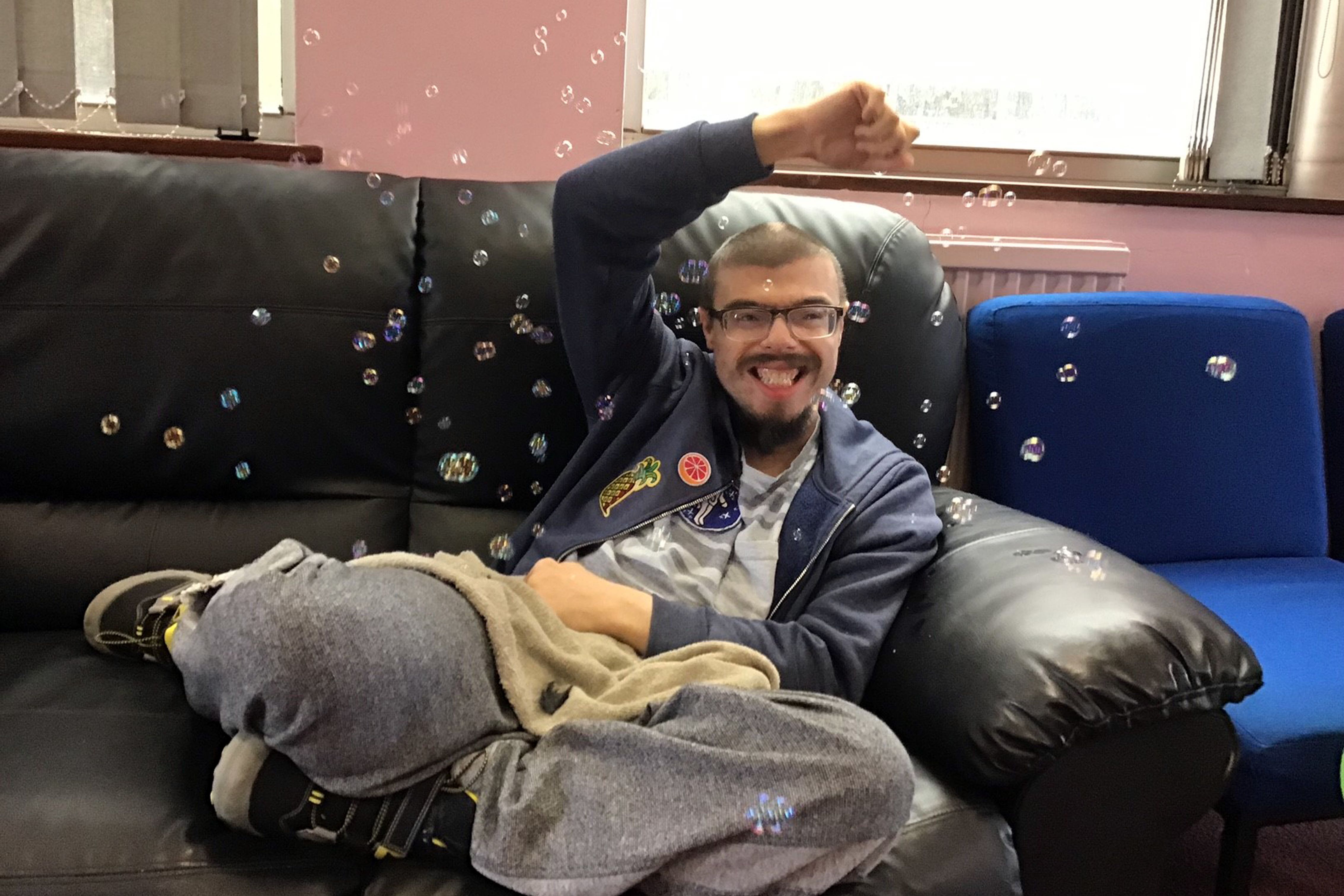Mother of man with severe learning difficulties ‘overjoyed’ after treatment win
Doctors said Jordan Tooke would need sedation in order to be given dialysis three times a week and felt such moves were not in his best interests.

The mother of a 29-year-old man with severe learning disabilities and “end-stage” kidney disease is “absolutely overjoyed” after winning a “life-sustaining” treatment fight in a specialist court.
Doctors told a judge that autistic Jordan Tooke would need to be sedated in order to be given dialysis three times a week – and argued such moves were not in his best interests.
Lawyers representing hospital bosses described the case as “heart-breaking” and “ethically very difficult” but said specialists felt such treatment would be too much of a burden for Mr Tooke because of his learning disabilities.
His mother, Camilla Tooke, 57, who lives in Norwich, disagreed and Mr Justice Hayden, who was told Mr Tooke could die in months without treatment, has decided dialysis should be tried.
We are really considering matters of life and death
Mr Justice Hayden has ruled in favour of Mr Tooke’s mother after considering arguments at a hearing at the Court of Protection, where judges analyse issues relating to people who lack the capacity to make decisions for themselves, in London.
Mrs Tooke had told Mr Justice Hayden: “Going through dialysis three times a week is burdensome – but at least he will have a life.”
Mr Justice Hayden described the case as “very difficult and challenging” and a “delicately balanced ethical dilemma”.
In a ruling, he said: “This case is truly about life-sustaining treatment.
“We are really considering matters of life and death.”
But the judge said he was “certain” trying dialysis was in Mr Tooke’s best interests.
The judge added: “I think he is entitled to the opportunity that it presents.”
Judges normally rule that patients at the centre of Court of Protection cases should not be named in media reports in order to protect their privacy.
And it is after a great deal of soul-searching and anxious thought that (specialists have) come to the view that it is not in his best interests to be provided with haemodialysis under sedation
But Mr Tooke’s mother wanted him to be named and Mr Justice Hayden agreed, saying publicity may help to find a kidney donor.
Mrs Tooke said the family has the result it wanted.
“We are overjoyed,” she told the PA news agency after the ruling.
“It has been a long fight.
“But getting this outcome – we are absolutely overjoyed.”
Specialists at the Norfolk and Norwich University Hospitals NHS Foundation Trust, the Cambridge University Hospitals, Cambridge University Hospitals NHS Foundation Trust and the Norfolk Community Health and Care NHS Trust are involved in Mr Tooke’s care and treatment.
Bosses at the three authorities launched litigation and asked Mr Justice Hayden to make decisions about what moves were in Mr Tooke’s best interests.
Understandably, all (Mrs Tooke) wants is what any parent would – to be able to provide the best opportunities for their child
Barrister Katie Gollop KC, who represented the three authorities, told Mr Justice Hayden Mr Tooke’s “renal function” had deteriorated “to the extent” that a decision as to whether it was his best interests to “start haemodialysis” could not wait.
“It is … a heart-breaking case and one which is ethically very difficult,” she said.
“And it is after a great deal of soul-searching and anxious thought that (specialists have) come to the view that it is not in his best interests to be provided with haemodialysis under sedation.”
She added: “In coming to that view they have not lost sight of the fact that if he is not dialysed Jordan is likely to die of end-stage renal failure within 12 months. They have also kept Jordan at the centre of their thinking.”
Specialists told the judge they were prepared to try if he thought dialysis was in Mr Tooke’s best interests.
Lawyer Liz Davis at Irwin Mitchell, which is representing Mrs Tooke, said after the ruling: “This is a really emotive case which once again brings the issue of provision of medical treatment to autistic people and people with learning disabilities into the spotlight.
“Understandably, all (Mrs Tooke) wants is what any parent would – to be able to provide the best opportunities for their child.”
She said Mr Tooke’s family tried to reach an agreement with hospital bosses and described the issue as “incredibly important and time-critical”.
“Without haemodialysis, it’s expected that Jordan will die in only a few months,” she added.
“Therefore, the court has been asked to make a judgment as to what’s in his best interests.
“The family believe that haemodialysis and searching for a kidney donor is in Jordan’s best interests.”
Mrs Tooke said she wanted to thank lawyers for their efforts, adding: “I want to say thank you to Liz Davis at Irwin Mitchell, Sarah Coleman at Mencap, Ben McCormack and Victoria Butler Cole for all their help and support.”
